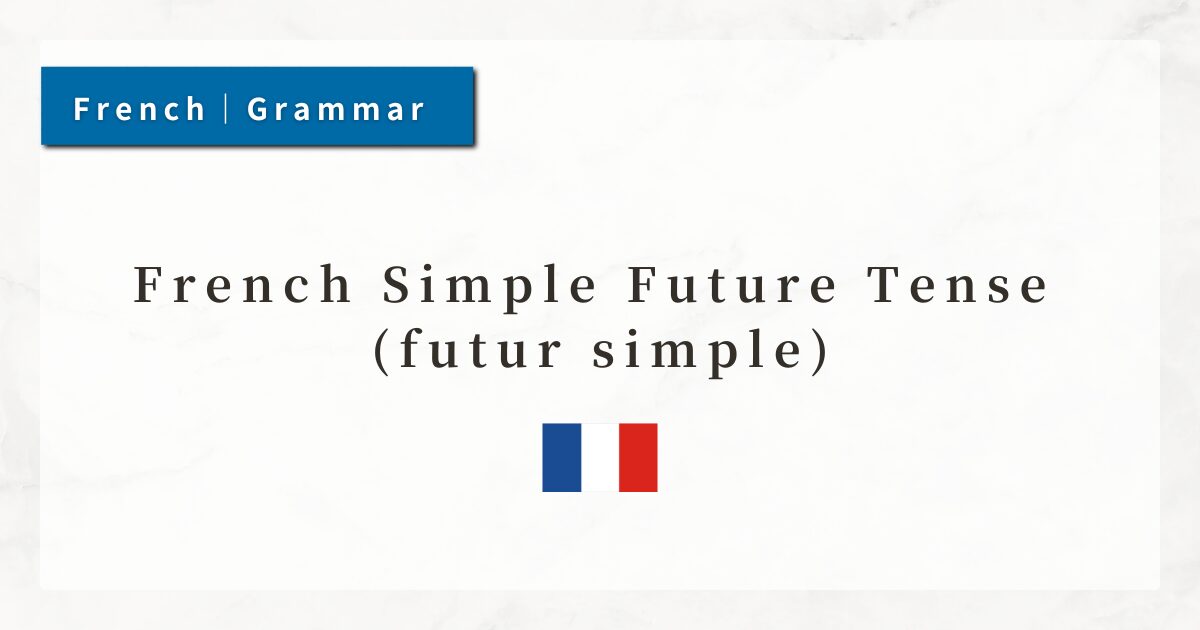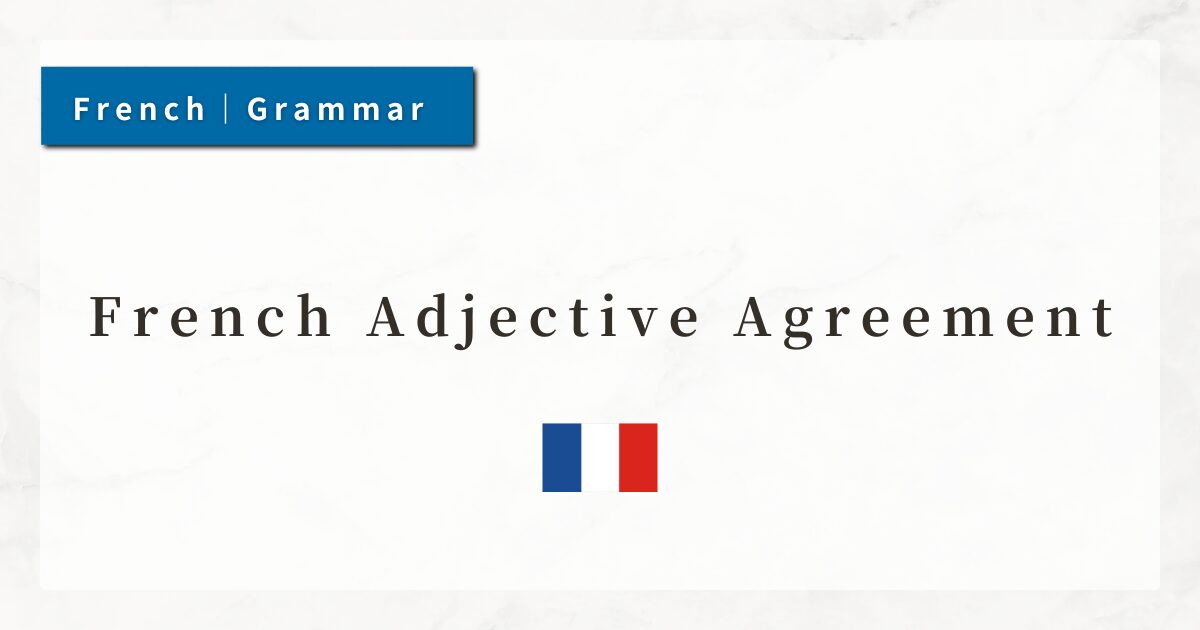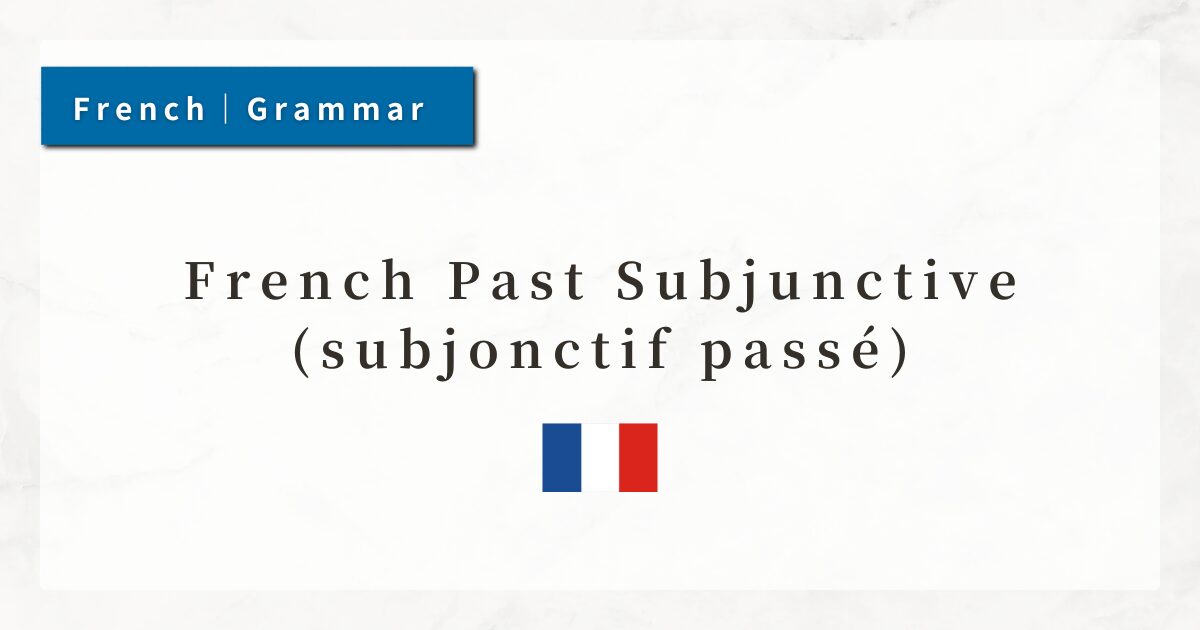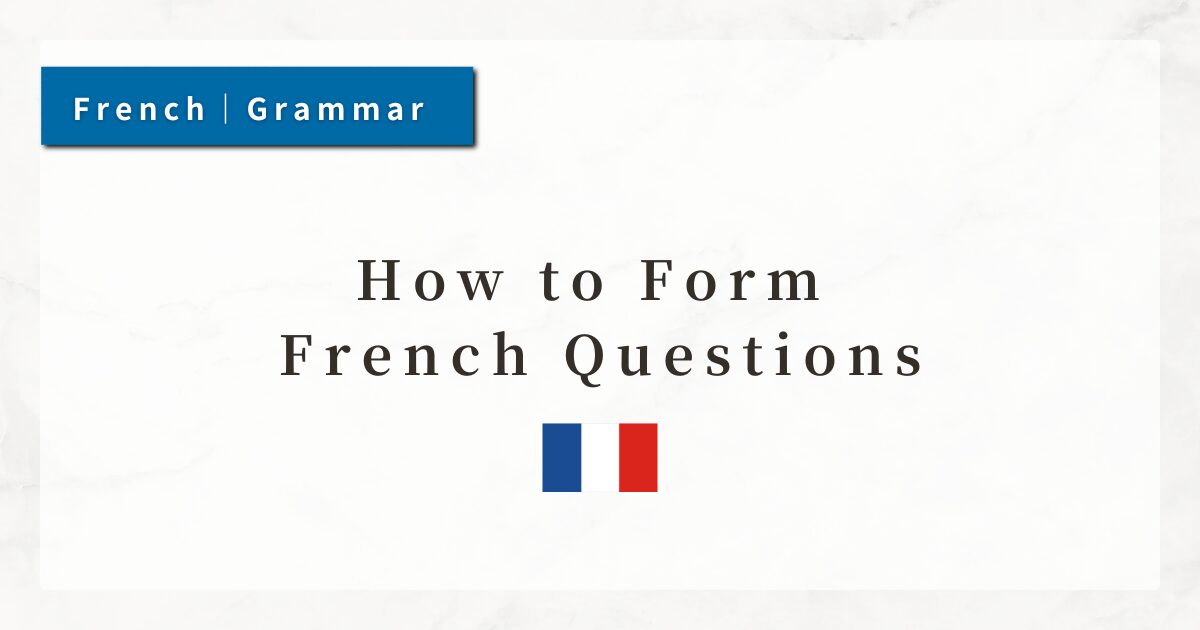#62 French Present Subjunctive (subjonctif présent) | Basic Conjugation Rules
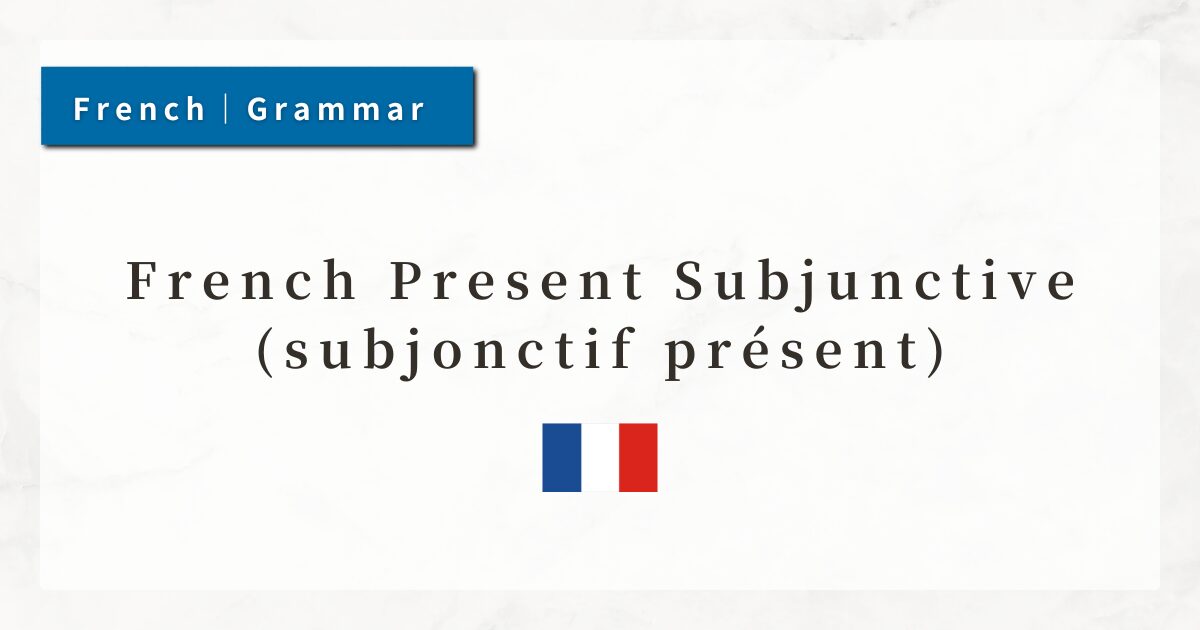
The French present subjunctive is a verb form used to express the speaker’s subjectivity, emotions, wishes, or uncertain situations.
It frequently appears in both spoken and written French, but because its conjugations and usage differ from the indicative mood, learners often find it confusing.
In this lesson, I will explain the basic meaning, conjugation patterns, and common contexts where the present subjunctive is used.
1. The Basics of the Present Subjunctive
1-1. Verb Moods and the Subjunctive
In French, verbs are categorized into moods (modes).
The indicative is used to state facts or objective reality, while the subjunctive is used to express subjective judgments, emotions, wishes, or uncertainty.
- Indicative: expresses facts, reality, certainty
- Subjunctive: expresses emotions, wishes, doubt, or uncertainty
1-2. The “que” Clause as the Subjunctive Context
The subjunctive almost always appears in a subordinate clause introduced by que.
When the main clause expresses emotion, will, judgment, or uncertainty, the verb in the subordinate clause must be in the subjunctive.
- Je veux que tu viennes.
(I want you to come.) - Il est nécessaire que nous finissions ce travail.
(It is necessary that we finish this work.)
The structure is typically: “Main clause + que + subject + verb (in the subjunctive).”
1-3. Same Subject → Use Infinitive
If the subject of the main clause and the subordinate clause is the same, the infinitive is generally used instead of the subjunctive.
- Je veux partir.
(I want to leave.) - Je veux que je parte.
→ unnatural, same subject in both clauses.
2. Formation of the Present Subjunctive (Regular Verbs)
Let’s take a first-group verb (-er verbs) as an example.
- Take the 3rd person plural (ils/elles) form of the present indicative.
- Remove the ending -ent to form the stem.
- Add the subjunctive endings.
Conjugation of parler (to speak):
| Person | Ending | Example |
|---|---|---|
| que je | -e | que je parle |
| que tu | -es | que tu parles |
| qu’il / qu’elle / qu’on | -e | qu’il parle |
| que nous | -ions | que nous parlions |
| que vous | -iez | que vous parliez |
| qu’ils / qu’elles | -ent | qu’ils parlent |
3. Irregular Verbs in the Present Subjunctive
Some common verbs have irregular forms in the subjunctive. The most frequent ones are être, avoir, aller.
être (to be)
| Person | Form |
|---|---|
| que je | sois |
| que tu | sois |
| qu’il/elle/on | soit |
| que nous | soyons |
| que vous | soyez |
| qu’ils/elles | soient |
avoir (to have)
| Person | Form |
|---|---|
| que je | aie |
| que tu | aies |
| qu’il | ait |
| que nous | ayons |
| que vous | ayez |
| qu’ils | aient |
aller (to go)
| Person | Form |
|---|---|
| que je | aille |
| que tu | ailles |
| qu’il | aille |
| que nous | allions |
| que vous | alliez |
| qu’ils | aillent |
4. Common Contexts for the Present Subjunctive
4-1. Expressing Emotions or Feelings
- Je suis heureux que tu viennes.
(I am happy that you are coming.)
4-2. Expressing Necessity or Obligation
- Il faut que nous finissions ce travail aujourd’hui.
(We must finish this work today.)
4-3. Expressing Wishes or Desires
- Je veux que tu fasses tes devoirs.
(I want you to do your homework.)
4-4. Expressing Doubt or Uncertainty
- Je doute qu’il soit là.
(I doubt that he is there.) - Penses-tu qu’elle ait raison ?
(Do you think she is right?)
4-5. After Certain Conjunctions
- Bien que (although):
Bien qu’il fasse froid, nous sortons.
(Although it is cold, we are going out.) - Pour que (so that):
Je te l’explique pour que tu comprennes.
(I explain it so that you understand.) - Avant que (before):
Pars avant qu’il ne pleuve.
(Leave before it rains.)
5. Summary
- The present subjunctive is used after expressions of emotion, necessity, wishes, doubt, and certain conjunctions.
- To form it: take the 3rd person plural of the present indicative → remove -ent → add subjunctive endings.
- Irregular verbs (être, avoir, aller) must be memorized.
- When the subject of both clauses is the same, use the infinitive instead of the subjunctive.
- Focus first on common everyday expressions (Il faut que, Je veux que, Je suis content que) to become familiar with usage.

